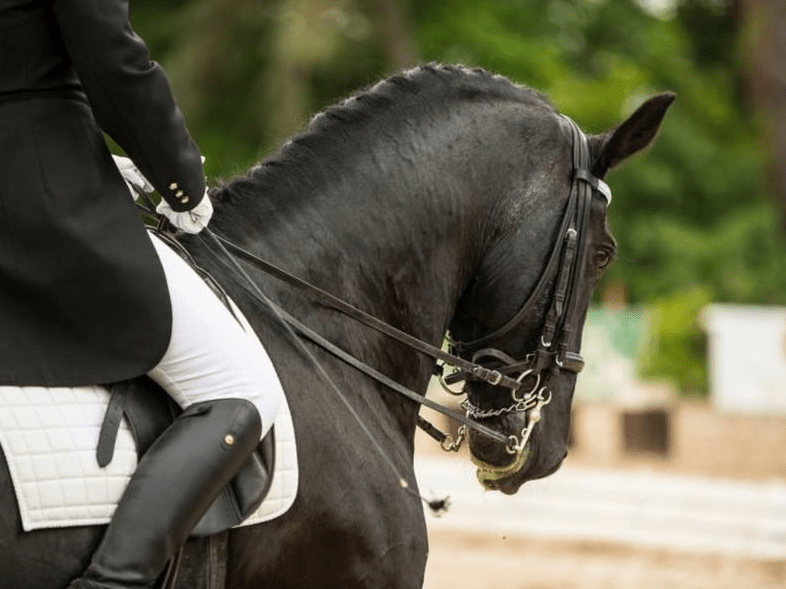Being a horse owner is a fulfilling experience that comes with duty as well as delight. The welfare of your equine partner should be your first concern, regardless of your level of experience with horses. Purchasing the appropriate horse products is crucial to laying the groundwork for a successful collaboration. Let’s examine the most important items that any new horse owner should have, from grooming supplies to safety equipment.
Table of Contents
The Pleasures and Duties of Owning a Horse
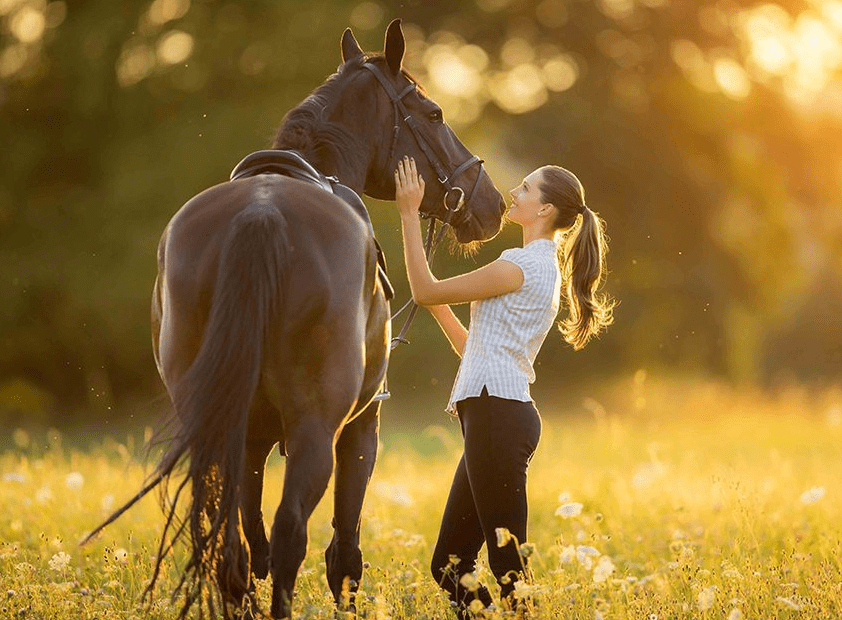
Emotional Benefits
The relationship between a horse and its Horse Owner is special and incredibly satisfying. Horse Owner provide loyalty, friendship, and the delight of shared experiences. Lifelong memories can be made by taking part in shows, riding through fields, or just taking the time to groom and care for your horse.
Everyday Obligations
Daily chores associated with horse Horse Owner are essential to your animal companion’s health. Feeding, grooming, exercising, and keeping an eye on the horse’s health are some of these duties. Maintaining a healthy and contented horse requires an understanding of and dedication to these duties.
Crucial Items for Novice Horse Owners
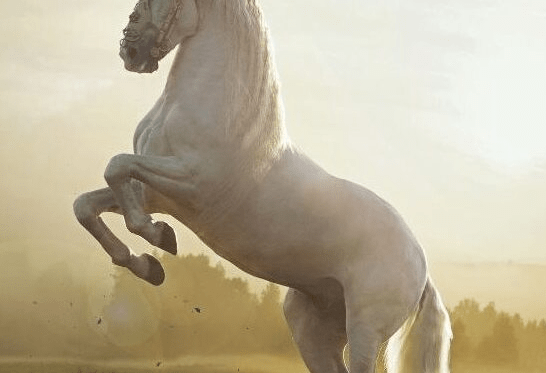
High-quality riding gear and tack
The saddle
One of the most crucial components of the tack is the saddle. To guarantee comfort and safety, it needs to fit both the horse and the rider properly. Saddles that don’t fit well can be painful, uncomfortable, and even harmful. Choose a saddle that fits your riding style, whether it’s English, Western, or another discipline, and give top priority to long-lasting, high-quality materials.
The bridal
For the horse and rider to communicate, a bridle is necessary. From simple snaffle bridles for daily riding to more complex ones for particular disciplines, different types of bridles have different functions. To avoid wear and tear, make sure the bridle fits properly and is composed of high-quality materials.
Other Necessities for Riding
Reins, saddle pads, girths, and stirrups are further essential riding gear. Every one of these components is essential to guaranteeing a smooth and efficient riding experience. Select products that are well-made, long-lasting, and appropriate for your needs.
Supplies for Grooming
Brushes
A decent grooming kit should have a range of brushes, each with a distinct function. Body brushes enhance luster and smooth the coat, while curry combs aid in removing debris and loose hair. A final polish can be applied to the coat using finishing brushes.
Shedding blades, mane combs, and hoof picks
To keep feet clean and avoid infections, hoof picks are necessary. Mane combs keep your horse’s tail and mane healthy and untangled. Shedding blades are helpful for getting rid of loose hair, particularly when it’s time to shed.
Horse High-quality supplements and feed
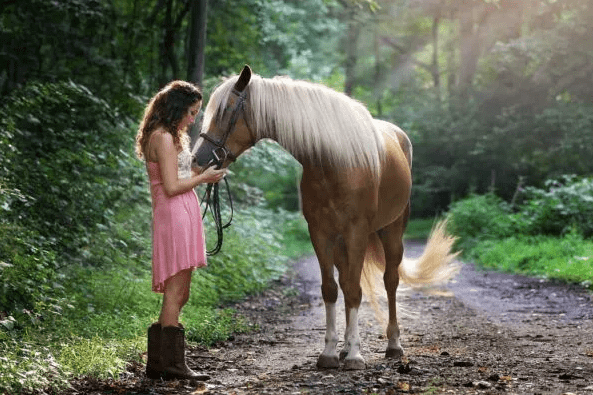
Expert Consultation
A healthy horse is built on a foundation of proper nutrition. To find the ideal feeding schedule for your horse based on its age, breed, and level of activity, it is imperative that you speak with a veterinarian or equine nutritionist.
Feed Types
The majority of horse diets include high-quality hay as a mainstay. Supplements could be required to make sure your horse receives all the vital nutrients, and grains can be added to give them more energy. Vitamins, minerals, and probiotics are examples of supplements that promote good digestion, a robust immune system, and general health.
Establishing a Secure and Cozy Living Space
Robust Beds and Shelter
Types of Shelters
To keep your horse safe from the weather, you must provide a strong shelter. Durable run-in shelters and well-ventilated barns are options. Make sure the shelter is roomy, secure, and risk-free.
Options for Bedding
A tidy and cozy sleeping area is produced by using high-quality bedding, such as shavings or straw. Bedding gives your horse a comfortable place to lie down and aids in moisture absorption. To keep a healthy atmosphere, clean and replace bedding on a regular basis.
Transportable Horse Stalls
Advantages
Portable horse stalls are a useful addition for equestrian Horse Owner who lack a permanent barn or who require flexibility. These stalls are perfect for events, travel, or short-term housing needs because they are simple to set up and relocate.
Stability and Durability
Sturdy materials like steel or aluminum are commonly used to make portable stalls, guaranteeing their stability and longevity. They provide a safe enclosure, which is especially useful for performances or other occasions where a makeshift shelter is needed.
Horse Essentials of Health and Safety
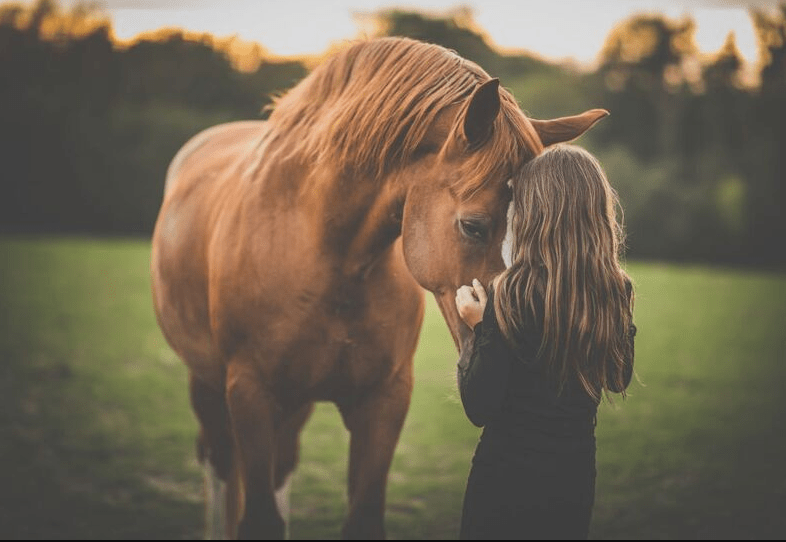
A First Aid Kit
Contents
Any competent Horse Owner must have a fully filled first aid kit. Add supplies like bandages, antiseptic solutions, sterile dressings, and a thermometer.
Knowledge of First Aid
Learn the fundamentals of first aid and speak with your veterinarian to be sure you have the tools you need to handle common equine health problems.
Products for Hoof Care
Required Tools
For your horse to be healthy and sound generally, proper foot care is essential. Invest in high-quality hoof conditioner, brushes, and hoof picks. A competent farrier should regularly trim your horse’s hooves to avoid problems like soreness and lameness.
Frequent Visits to the Farrier
A professional farrier should be scheduled on a regular basis to trim and care for your horse’s hooves. Common issues like thrush, cracks, and other infections can be avoided with proper hoof care.
Environmental and Seasonal Factors
Horse blankets that are comfortable
Selecting the Proper Blanket
A properly fitting horse blanket is essential in colder climates to keep your horse comfortable throughout the winter. Select a blanket that is the right weight for your environment and the requirements of your horse.
Climate-Related Issues
To avoid overheating, make sure the blanket is permeable and permits the horse to move freely. Your horse’s comfort in inclement weather can be greatly improved by a properly fitted and maintained blanket.
Products for Fly Control
Types
Horse Owner may become irritated and perhaps suffer health problems as a result of flies and other insects. To assist shield your horse from these pests, purchase fly masks, fly sheets, and fly sprays.
Advantages for Health
In addition to making your horse more comfortable, using fly control products helps avoid diseases like sweet itch and allergic responses brought on by insect bites.
Training and Enhancement
Instructional Resources
Tools
Maintaining your horse’s general health requires both mental and physical engagement. To give your horse a stimulating environment, spend money on training aids like lunge lines, cones, and obstacles.
Stimulation of the Mind and Body
Frequent training sessions avoid boredom and offer mental stimulation. A happy and healthy horse is a result of both frequent exercise and mental involvement.
Safety Equipment
Regarding the Rider
When working with horses, safety should always come first. Invest in the proper safety equipment, such as protective boots for your horse and a helmet that fits properly.
Regarding the Horse
When biking in poor light, take reflective clothing into account as well. Using the proper safety gear and establishing a secure environment lowers the chance of mishaps and guarantees a stress-free, enjoyable experience for both you and your horse.
Developing a Relationship with Your Horse
Making Time for Quality
Building a strong bond with your horse requires frequent quality time spent together. Grooming, feeding, and just spending time with your horse are all included in this. Mutual respect and trust are facilitated by constructive encounters.
Sessions of Training
During training sessions, use strategies for positive reinforcement to promote desirable behaviors. To encourage positive behavior, give your horse sweets, compliments, and tender touches.
Comprehending Behavior
Recognize and comprehend the behavior of your horse. Keep an eye out for indications of tension, happiness, or discomfort. You may improve your relationship and respond appropriately if you are aware of your horse’s body language and cues.
Typical Obstacles and How to Get Past Them
Health Concerns
Typical Conditions
Horse Owner are prone to a number of illnesses, including respiratory disorders, laminitis, and colic. For these disorders to be managed, early detection and timely treatment are essential.
Preventive Actions
To lower the chance of health issues, put preventive measures in place such routine veterinary examinations, a healthy food, and keeping the living space clean.
Issues with Behavior
Dealing with Problems
It can be difficult to deal with behavioral issues like kicking, biting, or spooking. Determine the behavior’s underlying cause and, if necessary, seek expert training. Positive reinforcement and regular training can aid in resolving these problems.
Effective Time Management
Maintaining Equilibrium in Duties
It might be difficult to juggle other obligations and horse care. Make a timetable that will help you efficiently manage your time. When needed, assign responsibilities to others and consult experts or other Horse Owner for assistance.
Resources for Horse Owners
Resources for Education
Books and Online Education
Use credible websites, online courses, and books to educate oneself. You may stay up to date on the best practices for managing and caring for horses by engaging in ongoing education.
Support and Community
Online forums and local clubs
To meet other Horse Owner, join social media groups, internet forums, and local equestrian clubs. In your journey as a Horse Owner, exchanging insights and guidance can be really beneficial.
Expert Assistance
Trainers, Farriers, and Veterinarians
Create a network of trustworthy experts, such as trainers, farriers, and veterinarians. The finest care for your horse is ensured by routine consultations with these professionals.
Conclusion
An overview of the main points
Being a Horse Owner is a fulfilling experience that calls for commitment and careful thought. Purchasing the appropriate equestrian supplies enhances your relationship with your horse and greatly improves their well-being.
Motivation
Accept the pleasures and obligations that come with Horse Owner. Your horse’s health, contentment, and the close relationship you have with them will all be a result of the work you put into their care.
An Appeal for Action
To protect your horse’s wellbeing, make quality product purchases, stay informed, and look for assistance from the equestrian community. Keep in mind that a contented and healthy horse is evidence of your dedication as a conscientious and nurturing Horse Owner.
Extra SEO Advice
Research on Keywords
To identify pertinent keywords associated with horse ownership, use tools such as Ahrefs or Google Keyword Planner. Throughout your piece, organically include these keywords.
Frequently Asked Question
- What are the first things a new horse owner should do?
Learning about horse care, finding a good home for your horse, and purchasing necessary items like high-quality tack, grooming supplies, and safety equipment are the first stages. Speaking with knowledgeable trainers, veterinarians, and Horse Owner can also yield insightful information. - How frequently should my horse be groomed?
Horses should be groomed every day to keep their skin and coat healthy and to look for any anomalies or injuries. The relationship between you and your horse is also strengthened by regular grooming. - What ought to be in a first aid pack for horses?
Sterile dressings, antiseptic solutions, bandages, a thermometer, scissors, tweezers, wound ointments, and any prescription drugs should all be included in a well-stocked horse first aid kit. Having a first aid manual on hand for easy access is also advantageous. - How can I pick the best horse feed for my animal companion?
A veterinarian or equine nutritionist can help you choose the appropriate feed for your horse based on its age, breed, and amount of exercise. To guarantee a balanced diet, high-quality hay, cereals, and the right vitamins are usually advised. - Which grooming essentials are necessary for every horse owner?
Curry combs, body brushes, mane and tail combs, hoof picks, and shedding blades are essential grooming tools. These supplies aid in maintaining the cleanliness, well-being, and comfort of your horse. - How can I make sure the shelter where my horse stays is both secure and cozy?
Make sure the space where your horse is kept is roomy, well-ventilated, and risk-free. To establish a cozy sleeping area, clean the shelter on a regular basis and supply high-quality bedding like straw or shavings. For short-term housing requirements, portable horse stalls can provide flexibility. - How can I keep my horse from developing common health problems?
By feeding your pet a balanced diet, keeping your home clean, getting regular veterinary checkups, and taking good care of your feet, you can avoid common health problems. It’s also critical to be alert and take prompt action in response to any indications of disease or harm. - What safety equipment is required when riding a horse?
Reflective clothing for riding in poor light, protective boots for the horse, and a properly fitted helmet for the rider are all essential pieces of safety equipment. Purchasing high-quality safety gear lowers the possibility of mishaps and injury. - How frequently should the hooves of a horse be clipped?
A skilled farrier should normally trim a horse’s hooves every 6 to 8 weeks. To avoid foot-related issues and preserve general hoof health, regular trimming is crucial. - What are the advantages of giving horses fly control products?
Horses are shielded from insect irritability and possible health problems by fly control items like fly masks, fly sheets, and fly sprays. In addition to preventing ailments like sweet itch and allergic reactions, these products make your horse more comfortable. - How can I develop a close relationship with my horse?
Spending quality time with your horse, employing positive reinforcement during training, and being aware of your horse’s body language and behavior will all help you develop a close relationship with your horse. Mutual respect and trust are fostered by encounters that are patient, kind, and consistent. - What tools are accessible to novice horse owners?
Educational books, online courses, trustworthy websites, local equestrian clubs, internet forums, and social media groups are all resources for new horse owners. It is also advantageous to establish a network of trustworthy experts, including trainers, farriers, and veterinarians. - How can I deal with typical horse behavioral issues?
Determine the underlying source of common behavioral issues and, if need, seek professional training to address them. Problems like spooking, biting, or kicking can be resolved with regular training, positive reinforcement, and a composed, patient approach. - What factors should I take into account when buying riding gear?
Fit, material quality, and compatibility with your riding style should all be taken into account when buying riding gear. For the comfort and safety of the rider and the horse, a properly fitted saddle, bridle, and other necessities are required. - As a horse owner, how can I efficiently manage my time?
Make a timetable that covers all of the daily chores needed for horse care to efficiently manage your time. To balance horse care with other obligations, assign tasks when needed and enlist the help of other horse owners or experts.
